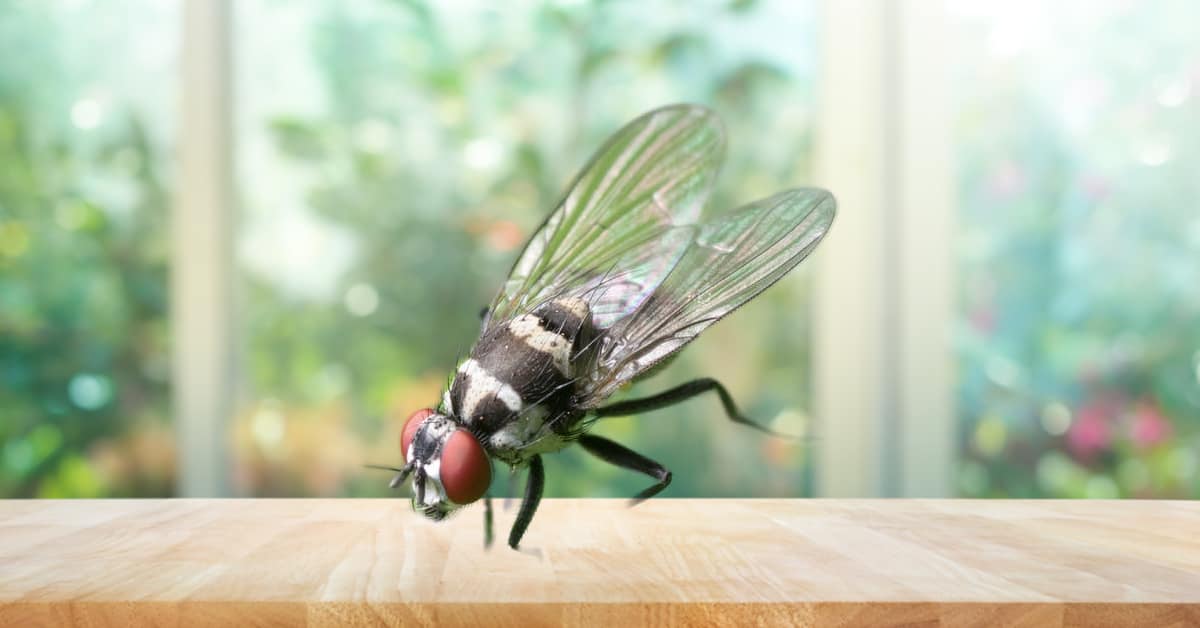Does Weather Affect Insects in Your Home?
You may have noticed more spiders and ladybugs in your home on rainy days or as the weather gets colder.
But did you know all kinds of weather can affect insect behavior? And it’s not just a matter of curiosity, as insects and other pests cause billions of dollars in damage across the United States every year.
Understanding the effects of hot weather, cold weather, and environmental changes, in general, can help you prepare your home against insect infestations.
Read on to learn how different weather conditions affect insect behavior and seasonal pest control methods.
Effects of Temperature
Insects are ectothermic, commonly referred to as “cold-blooded” animals. This means that they cannot regulate their body temperatures. Therefore, the behavior and activity levels depend on the ambient air temperature.
Extreme weather that is either too hot or too cold will kill an insect. However, different insects have different tolerances to temperature. They may also pose different problems depending on the time of year.
Effects of Hot Weather
Because insects are ectothermic, an increase in temperature means an increase in activity. You’ll notice bees, dragonflies, and other insects more active from 12 pm to 3 pm. This is when the sun and heat are at their highest.
Along with this increased activity, insects also increase their metabolic rate. This means they require more calories. For the honey bee, that means gathering more pollen by increasing the number of flowers they visit.
And for wasps, yellow jackets, and other meat-eating insects, that means more aggressively attacking your barbecues and picnics. Yellow jackets, in particular are a nuisance. Because, unlike honeybees, they can sting multiple times without losing their stingers.
With the increase in heat and readily available food sources, insects will reproduce this time of year. So you’ll notice an overall increase in insects during hotter months, particularly mosquitos and bees.
Effects of Cold Weather
Cold weather has the opposite effect on ectothermic animals. The decrease in temperature causes the bodily functions of insects to slow down or even stop altogether.
Many insects have a unique adaptation that allows them to enter a state called “diapause.” This is essentially insect hibernation.
They do this by making their own antifreeze by producing alcohols that lower the freezer point of their bodies. Then they wait it out in that state until temperatures rise again in the spring.
But not all insects can do this, and many insects migrate to escape cooling temperatures.
The most famous and awe-inspiring example of this may be the great migration of the Monarch Butterflies. In autumn, millions of these beautiful insects travel up to 3,000 miles from Canada down to the forests of southern Mexico. There, they gather in dense clumps for warmth. A single tree may have as many as ten thousand butterflies on it.
But they’re not the only insects traveling in search of fairer weather. Another famous migratory insect is the locust, damaging between 50% to 80% of agricultural crops in swarm years.
On a smaller scale, insects may also seek refuge in the warm interior of your home. As temperatures dip below freezing during the winter, you may notice an uptick in spiders, cockroaches, and ladybugs, among other common insects making their way inside.
Effects of Rain
Insect behavior is also dependent on rain as weather patterns, as well as the effects of humidity and moisture.
Insects need moisture to survive, and insect populations will be directly affected by how much rain has fallen.
For example, heavy rain years are followed by booms in mosquito populations. This is because there is more standing water around. for them to lay their eggs. This is also true of carpenter ants.
While mosquitos are usually just annoying, carpenter ants can damage your home severely. That is why it is essential to eliminate sources of standing water around your property.
Insects that make their homes in the ground—such as ants or yellowjackets—may get flooded in heavy rain. They may then try to enter your home, looking for shelter.
Furthermore, increases in the rain can affect the moisture levels around your home. For example, insects like termites are attracted by increased moisture levels around the foundation of your home.
To prevent to, avoid letting water accumulate near your home’s foundation. And be sure to keep areas like crawlspaces and basements well-ventilated.
Effects of Dry Air
Some insects thrive in dry conditions, like grasshoppers and chinch bugs. Both of these are major agricultural pests.
On the other hand, dry weather can send other types of insects inside your home in search of water. This leads them to damp spaces like your crawl spaces, kitchens, and bathrooms.
Dry weather can also be beneficial. For example, drier years lead to an overall reduction in many types of insects, including ticks. Ticks cannot survive prolonged periods of drought, as their bodies desiccate without access to moist conditions.
Pest Control Services
Depending on your region, seasonal pest control will vary depending on the types of insects and weather patterns present in your area.
A professional pest control service will have expert knowledge of your region. They will be able to evaluate your home’s protection against possible infestations.
If you’re already dealing with a pest infestation, a trained pest expert can safely and effectively remove the infestation. They will also address the underlying issues that lead to the pest problem in the first place. This is essential for ensuring that the infestation does not reoccur after initial treatment.
Schedule a Consultation
The effects of hot weather, humidity, and other seasonal changes can make your home vulnerable to pest infestations.
If you want to prevent an infestation from taking hold or have an existing pest problem, contact NJ Pest Control today to schedule an appointment. Our QualityPro® certified team will ensure your pest issue is resolved in an environmentally friendly and effective way.

